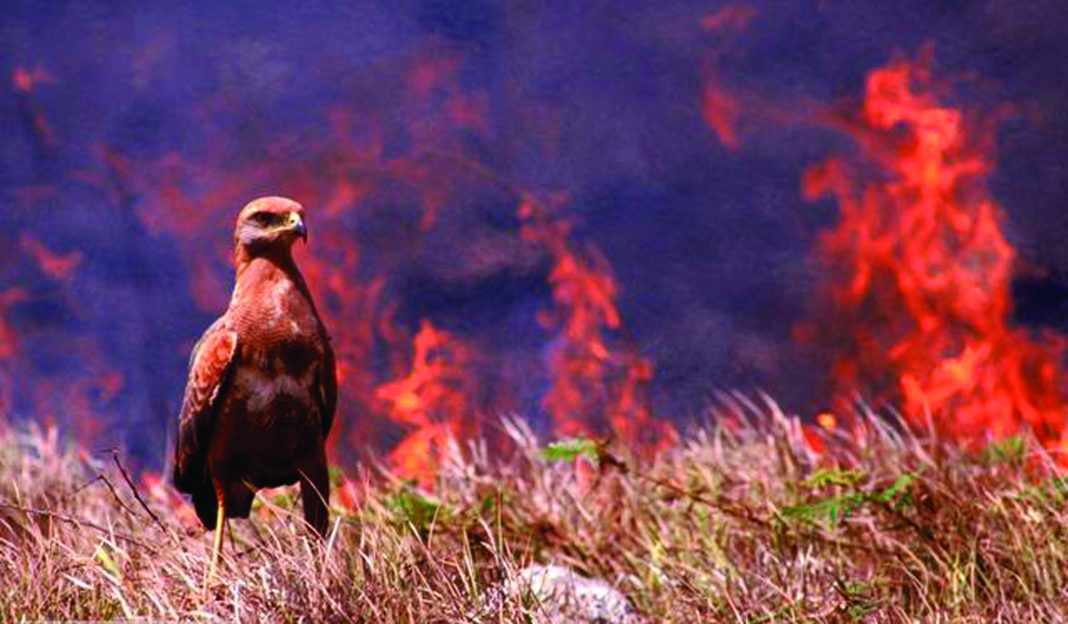It has been a distressing week in Gran Canaria. A major fire broke out in the heavily forested centre of the island, which is in an area that we often visit. It is a region that few tourists can be bothered to visit, for which residents are grateful, since not only is it an area of spectacular natural beauty, but an area of peace and tranquillity.
It is well away from the pressures of the modern world, the sun beds, fast food restaurants and bars in the busy tourist area in the south of the island.
Not only the Gran Canaria fire, but many other news stories have been particularly distressing over the last few weeks. Tragedies, such as the Grenfell Tower fire, flooding in Bangladesh, horrendous hurricanes in the Caribbean, volcanic eruptions in Italy and the horrors of ‘ethnic cleansing’ in Myanmar, have made an impact upon all but the most cold and detached personalities.
As we watch these horrors unfold in faraway places in the comfort of our own living rooms, it is often difficult to identify with the pain and suffering that ordinary people experience when faced with such disasters.
Although, I understand that the suffering and welfare of people come first, I know that I am not the only one to be distressed about animals caught up in such disasters. There is rarely any mention of animals caught up in flooding, fire and other tragedies that appear on our television screens, and little is ever reported.
It seems that animals suddenly become invisible during times of crisis, yet as all animal lovers will know, they have become part of our lives and highly important. Dogs, cats, horses, donkeys, birds and reptiles, as well as farm animals often perish in horrendous circumstances during these periods of exceptional tragedy, and it seems that they are forgotten and left behind during the pressure of rescue efforts.
This point was brought home to me this week whilst reporting on the forest fire, which quickly got out of control on the island where I live. The fire spread quickly and destroyed many hectares of land, involving five municipalities. A number of villages and many people were evacuated.
Thanks to the brave and selfless efforts of the emergency services, it appears that only one life was lost. The woman who died was an expat, originally from Sweden, who had made her life on our beautiful island. She refused to leave her home, preferring to stay and look after her animals. Her charred body was later discovered outside her home. One can only imagine her terror, as she was consumed by the flames.
It is often difficult to identify with the hundreds and thousands of people in distress that appear on our television screens, but it is the distress of small groups and individuals that help us to understand their pain and suffering. For me, it was the dying moments of this terrified woman that has stayed in my mind.
I did not know her, but the fact that she bothered to stay behind to care for her animals tells me a lot about her compassion and humanity, and I suspect that she is someone who I would have liked.
Spain and the Canary Islands are often rightly criticised for attitudes to animals, which can often appear casual, uncaring and exploitative. Over the years that I have lived in Spain and the Canary Islands, there have been many times when I have wished that we had the equivalent of the UK’s RSPCA, PDSA and many other dedicated animal charities helping to protect animals in Spain.
Sadly, this is not the case, and much is left to hard-stretched police, as well as dedicated individuals, to help to relieve the plight of animals suffering in this country.
There is some good news to help to soothe the rawness of this latest tragedy on the island for animals that need veterinary help. The Veterinary Department of the University of Las Palmas is currently helping animals that have suffered, but escaped from the fire at a centre in the town of San Mateo.
Volunteers from the College of Vets at the University of Las Palmas are offering a 24-hour service to help these animals. Dogs and cats can be taken directly to a central animal point for care and attention.
It is often said that a society can be judged by its attitude towards animals. I have always believed this to be true, and in these polarised and often selfish times, it is heart-warming that the needs of animals are also being considered following a tragedy that has affected all precious life.
If you enjoyed this article, take a look at Barrie’s websites: http://barriemahoney.com and http://thecanaryislander.com or read his latest book, ‘Footprints in the Sand’ (ISBN: 9780995602717). Available in paperback, as well as Kindle editions.
Join me on Facebook: @barrie.mahoney
© Barrie Mahoney





